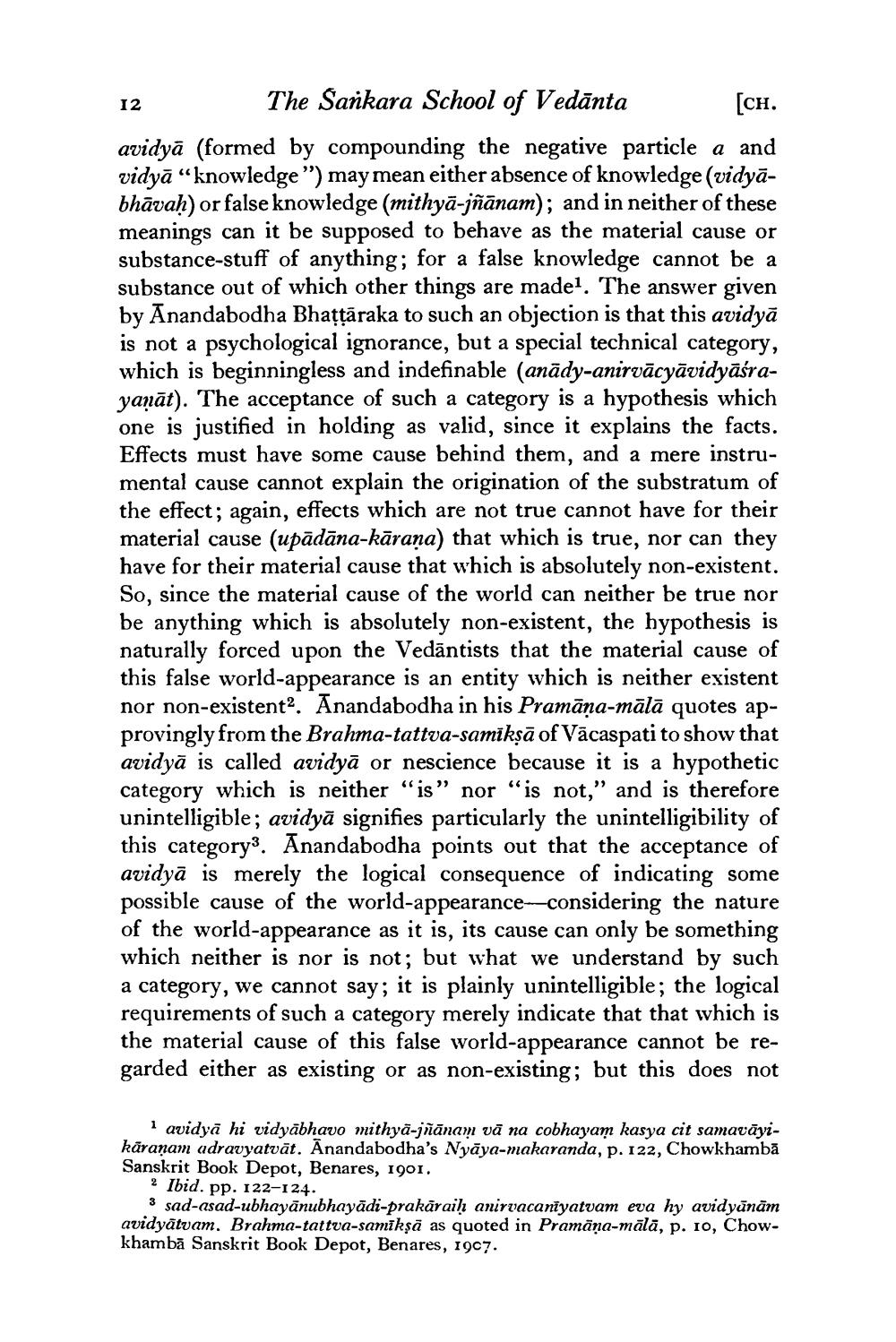________________
12
The Sankara School of Vedānta [ch. avidyā (formed by compounding the negative particle a and vidyā “knowledge”) may mean either absence of knowledge (vidyābhāvaḥ) or false knowledge (mithyā-jñānam); and in neither of these meanings can it be supposed to behave as the material cause or substance-stuff of anything; for a false knowledge cannot be a substance out of which other things are madel. The answer given by Anandabodha Bhațţāraka to such an objection is that this avidyā is not a psychological ignorance, but a special technical category, which is beginningless and indefinable (anādy-anirvācyāvidyāśrayaņāt). The acceptance of such a category is a hypothesis which one is justified in holding as valid, since it explains the facts. Effects must have some cause behind them, and a mere instrumental cause cannot explain the origination of the substratum of the effect; again, effects which are not true cannot have for their material cause (upādāna-kārana) that which is true, nor can they have for their material cause that which is absolutely non-existent. So, since the material cause of the world can neither be true nor be anything which is absolutely non-existent, the hypothesis is naturally forced upon the Vedāntists that the material cause of this false world-appearance is an entity which is neither existent nor non-existenta. Anandabodha in his Pramāņa-mālā quotes approvingly from the Brahma-tattva-samīkņā of Vācaspati to show that avidyā is called avidyā or nescience because it is a hypothetic category which is neither “is" nor "is not,” and is therefore unintelligible; avidyā signifies particularly the unintelligibility of this category3. Anandabodha points out that the acceptance of avidyā is merely the logical consequence of indicating some possible cause of the world-appearance--considering the nature of the world-appearance as it is, its cause can only be something which neither is nor is not; but what we understand by such a category, we cannot say; it is plainly unintelligible; the logical requirements of such a category merely indicate that that which is the material cause of this false world-appearance cannot be regarded either as existing or as non-existing; but this does not
avidyā hi vidyābhavo mithyā-jñānam vā na cobhayam kasya cit samavāyikāraṇam adravyatvāt. Anandabodha's Nyāya-makaranda, p. 122, Chowkhambā Sanskrit Book Depot, Benares, 1901.
? Ibid. pp. 122-124.
> sad-asad-ubhayānubhayādi-prakāraih anirvacanīyatvam eva hy avidyānām avidyātvam. Brahma-tattva-samīkņā as quoted in Pramāņa-mālā, p. 10, Chowkhamba Sanskrit Book Depot, Benares, 1907.




